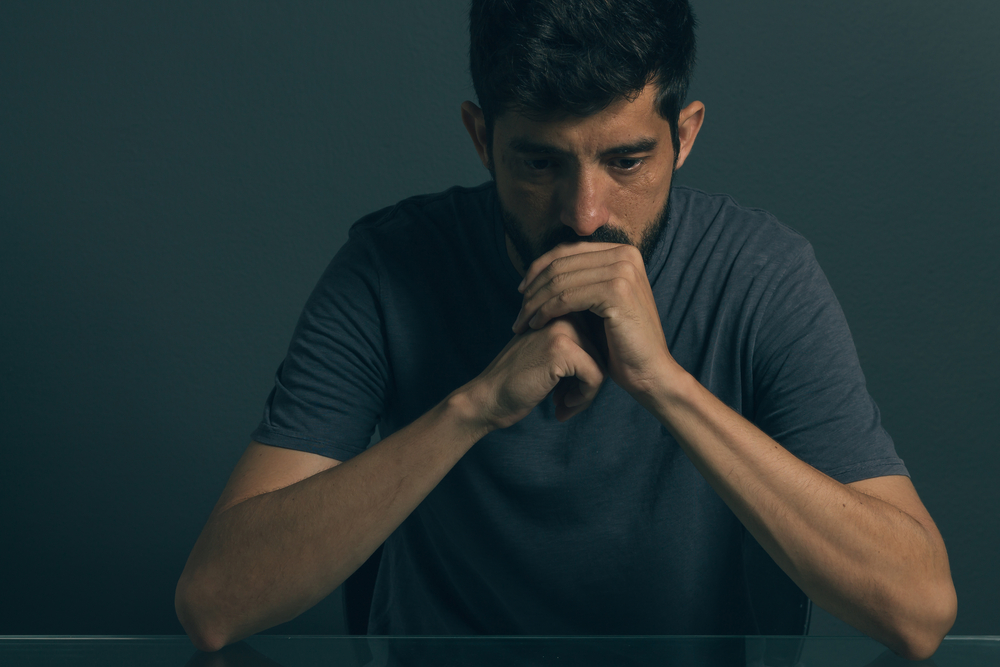Ever feel like you’re carrying a backpack full of guilt wherever you go? It’s heavy, it’s uncomfortable, and it’s definitely not helping you enjoy the scenery. While a little guilt can be a useful reminder to be mindful of our actions, a constant sense of guilt can be seriously draining. It’s like having a dark cloud hanging over your head, making everything feel a little bit worse. The good news is, you don’t have to live with that weight on your shoulders. There are ways to kick that guilt to the curb and start living a lighter, happier life. Here are some suggestions.
1. Figure out what’s fueling the guilt fire.

Is it past mistakes, current actions, or worries about the future? Pinpointing the source of your guilt can help you address it head-on. Maybe it’s time to make amends for past wrongs or change your behavior to align with your values. Once you know what’s causing the guilt, you can start taking steps to extinguish it.
2. Stop comparing yourself to everyone else’s highlight reel.

Social media can make it feel like everyone else is living their best life, but remember, they’re only showing you the carefully curated highlights. You don’t know what struggles they’re facing behind the scenes. Focus on your own journey and celebrate your own wins, big or small. As MIT Sloan notes, research has shown just how harmful social media is for mental health, so maybe step away a bit more…
3. Challenge those negative thoughts like a boss.

Guilt often comes with a side of negative self-talk. When those critical thoughts start swirling, put on your mental armor and fight back. Ask yourself if those thoughts are truly accurate or if you’re being too hard on yourself. Replace those negative thoughts with positive affirmations and reminders of your strengths.
4. Forgive yourself like you’d forgive a friend.

We all make mistakes. It’s part of being human. Would you hold a grudge against a friend for making a similar error? Probably not. So why are you so hard on yourself? Practice self-compassion and forgive yourself for your past mistakes. You deserve a fresh start.
5. Stop trying to be perfect—it’s overrated anyway.

Perfection is an illusion. Striving for it will only set you up for disappointment and a whole lot of unnecessary guilt. Embrace your imperfections, learn from your mistakes, and strive to be the best version of yourself, not a flawless robot.
6. Talk it out with someone you trust.

Sometimes, sharing your feelings with a friend, family member, or therapist can help you gain perspective and release some of that pent-up guilt. Talking it out can help you identify patterns, challenge negative thoughts, and develop healthier coping mechanisms.
7. Take action to make amends.

If your guilt stems from a specific action or inaction, take steps to make things right. Apologize to those you’ve hurt, try to repair any damage you’ve caused, or simply do something kind for someone else. Taking action can help you feel more empowered and less burdened by guilt.
8. Practice self-care like it’s your job.

Guilt can be emotionally draining. Make time for activities that nourish your mind, body, and spirit. Exercise, get enough sleep, eat healthy foods, spend time in nature, or pursue a hobby you enjoy. Taking care of yourself can help you feel more balanced and resilient in the face of guilt.
9. Set healthy boundaries and learn to say no.

Sometimes, guilt stems from feeling obligated to say yes to everything and everyone. It’s okay to prioritize your own needs and turn down requests that don’t align with your values or schedule. Setting healthy boundaries can help you avoid situations that trigger guilt in the first place, Psych Central notes.
10. Don’t dwell on the “what ifs.”

Ruminating on past decisions or missed opportunities is a recipe for endless guilt. It’s easy to get caught in a cycle of “what ifs,” but it’s important to remember that you can’t change the past. Focus on the present and make the best choices you can with the information you have now.
11. Give yourself credit for the good stuff you do.

Are you so focused on your mistakes that you’re forgetting all the good things you do? Make a conscious effort to acknowledge your positive contributions, whether it’s helping a friend, volunteering your time, or simply being a kind and caring person. Focusing on the good can help counteract the negative feelings of guilt.
12. Don’t let guilt hold you hostage.

Guilt can paralyze you, preventing you from taking action or moving forward. Don’t let it dictate your decisions or limit your potential. Acknowledge your feelings, learn from your mistakes, and then let it go. You deserve to live a life free from the shackles of guilt.
13. Embrace imperfection as a sign of authenticity.

Nobody’s perfect, and that’s okay. In fact, our imperfections are what make us unique and interesting. Embrace your flaws, quirks, and mistakes as part of who you are. Don’t let the pursuit of perfection rob you of the joy of being your authentic self.
14. Focus on progress, not perfection.

Instead of beating yourself up for not being perfect, celebrate the small steps you take towards growth and self-improvement. Every effort you make to learn, change, and be better is a victory worth celebrating. Focus on the journey, not just the destination.
15. Seek professional help if needed.

If chronic guilt is impacting your daily life and preventing you from enjoying your relationships or pursuing your goals, it might be time to seek professional help. A therapist can help you identify the root causes of your guilt, develop healthy coping mechanisms, and create a plan for moving forward. Don’t hesitate to reach out for support if you need it.
Enjoy this piece? Give it a like and follow PsychLove on MSN for more!




